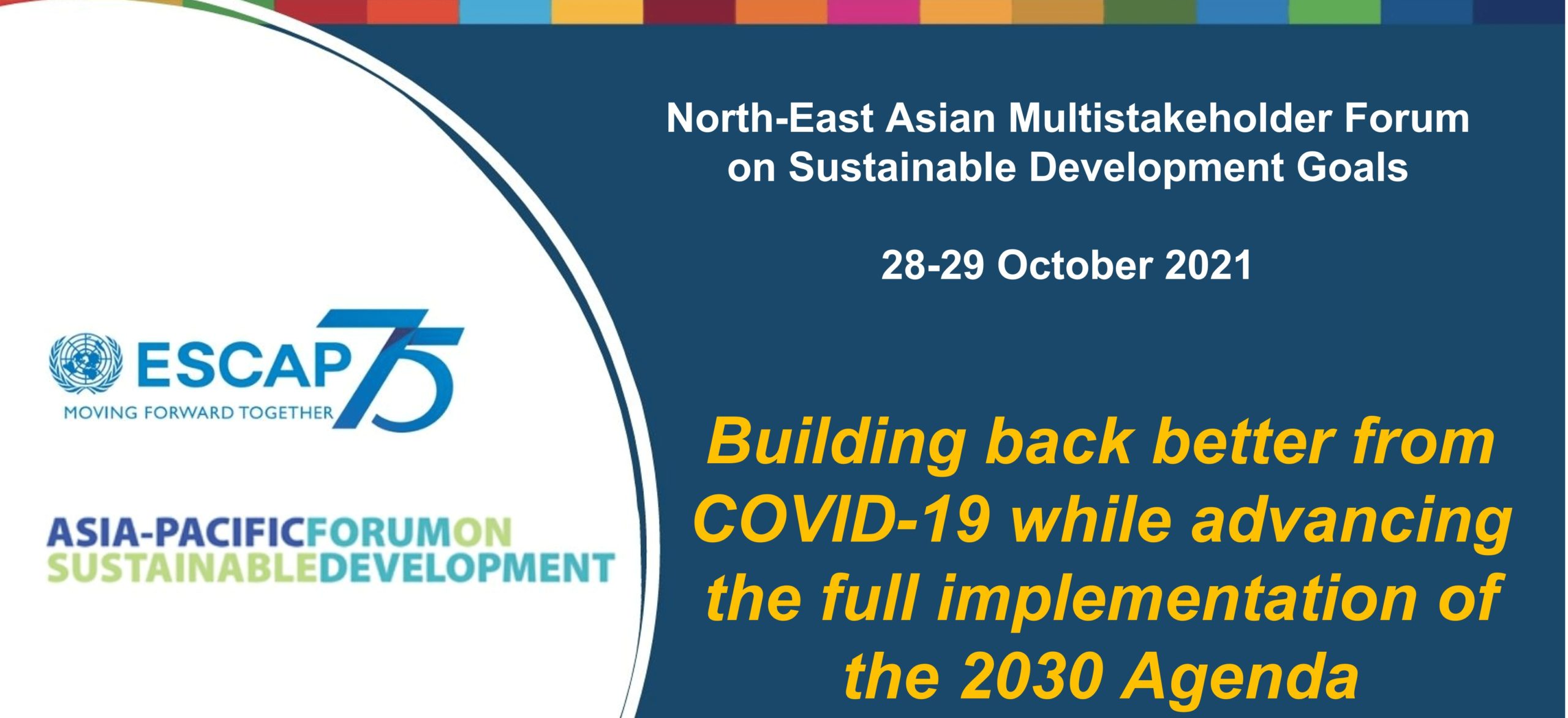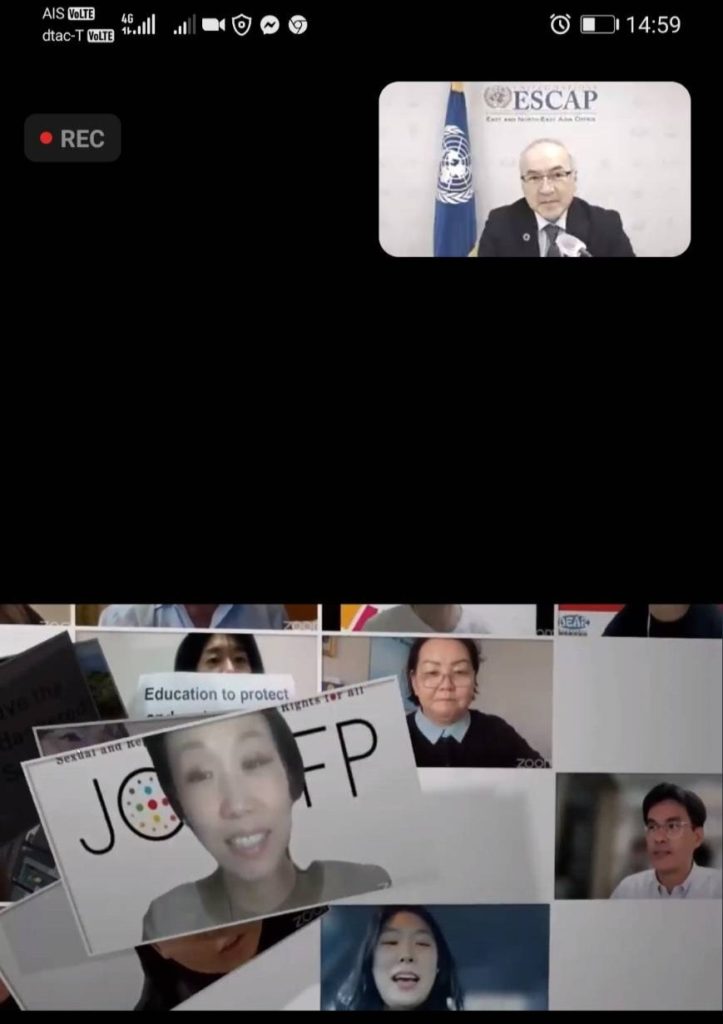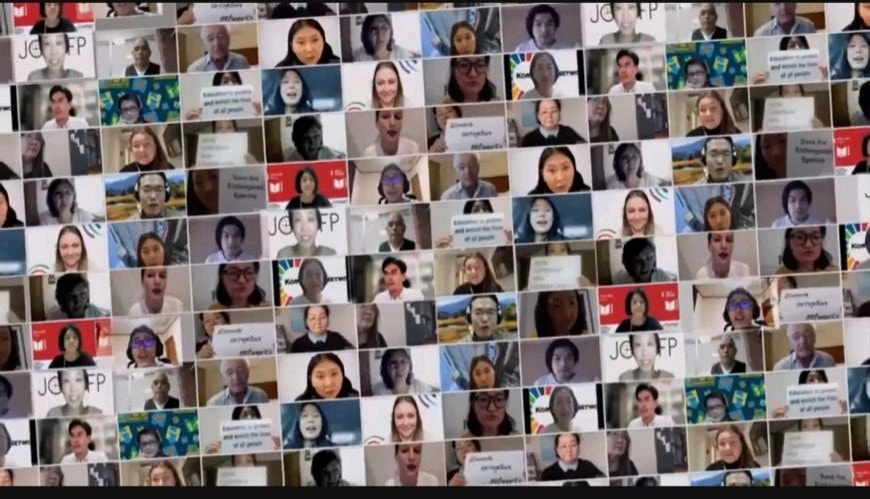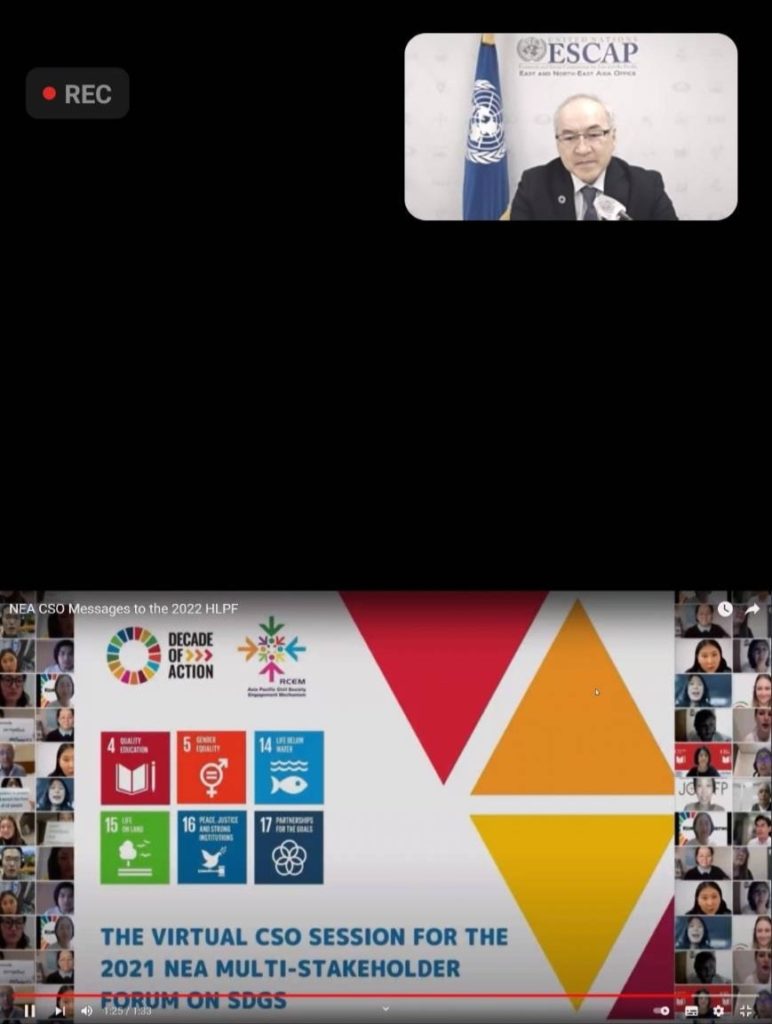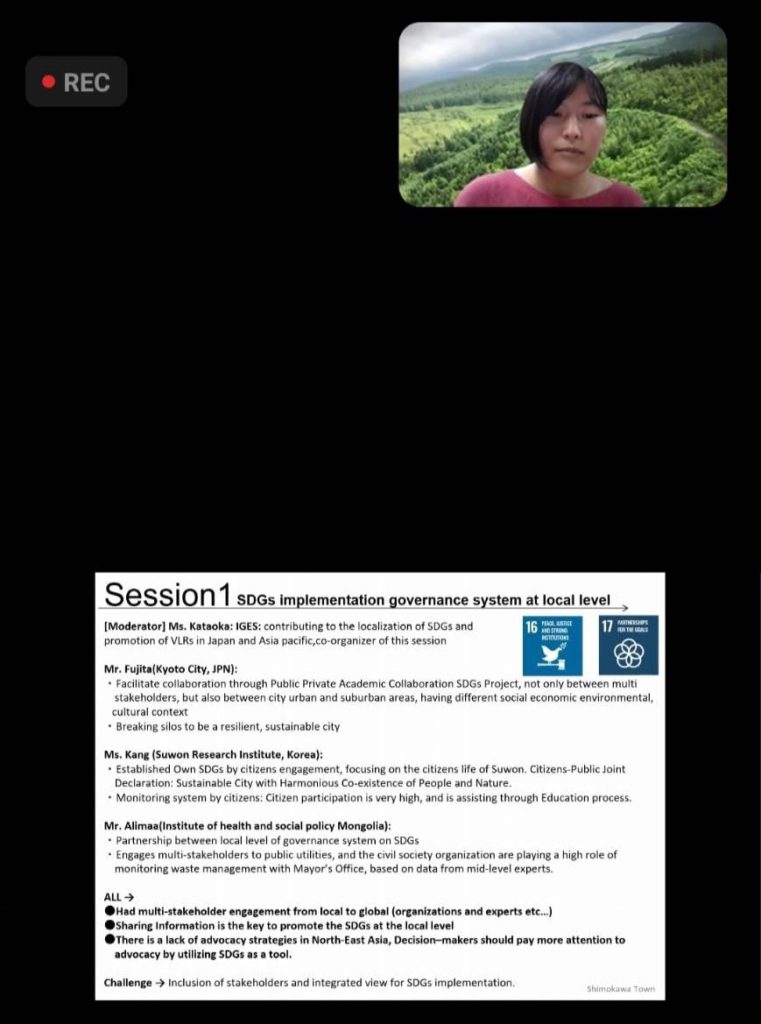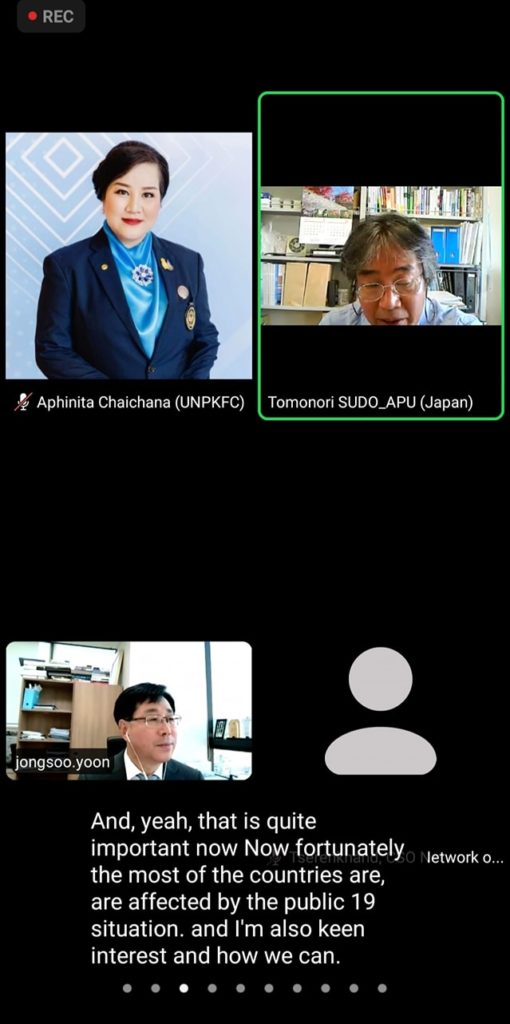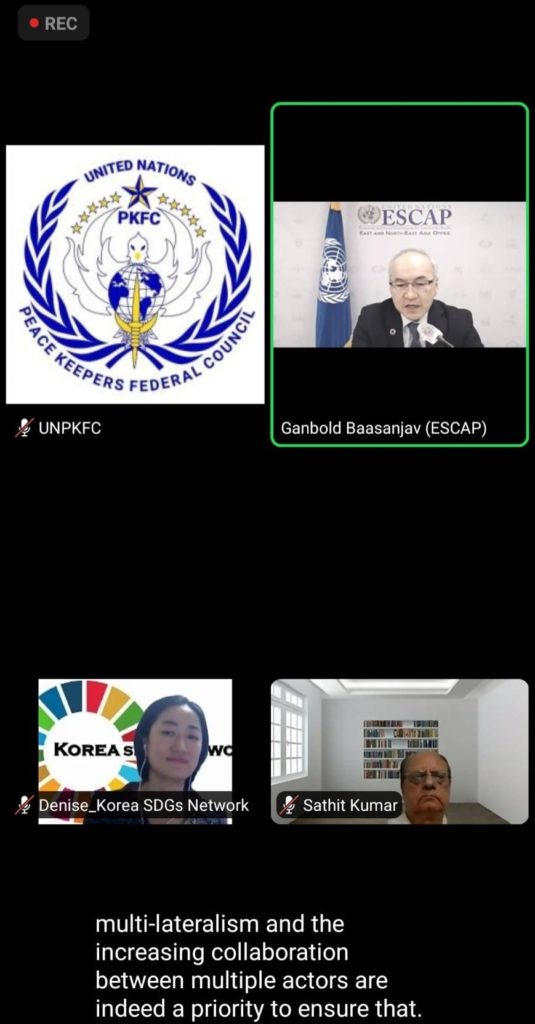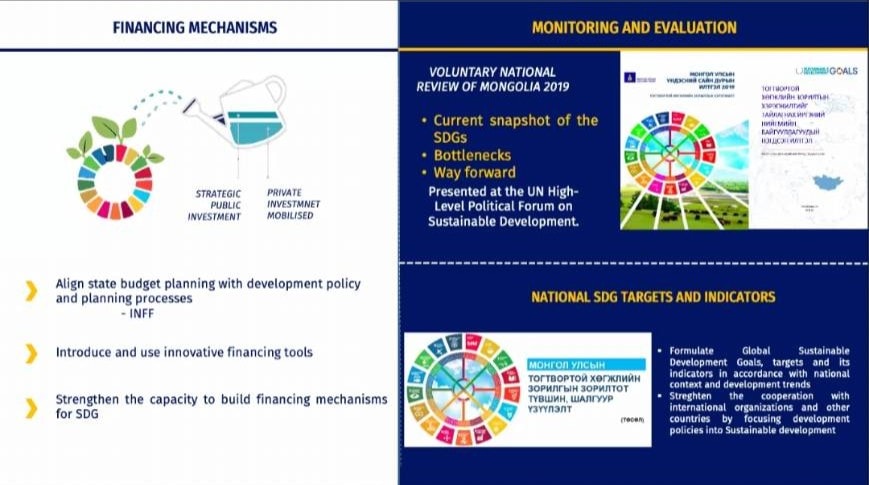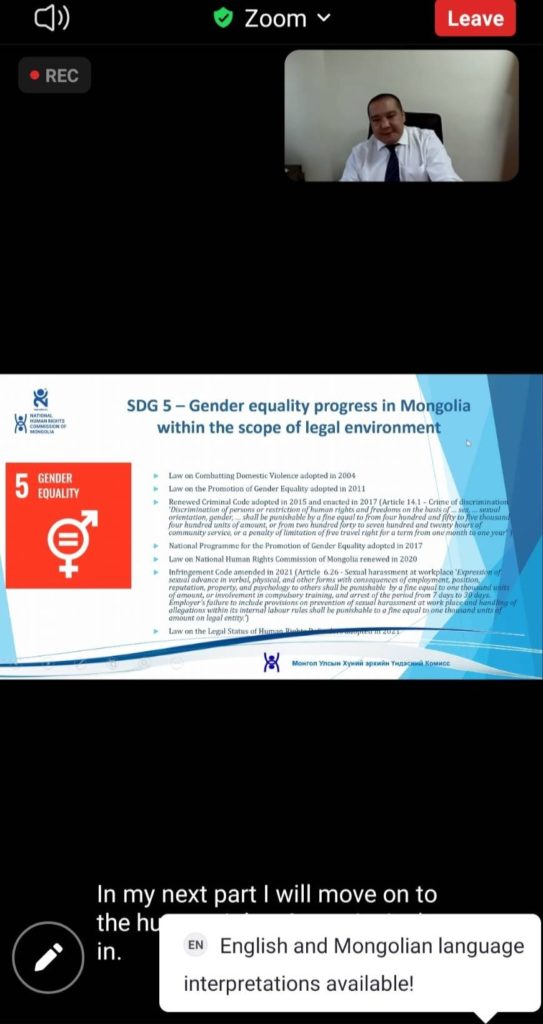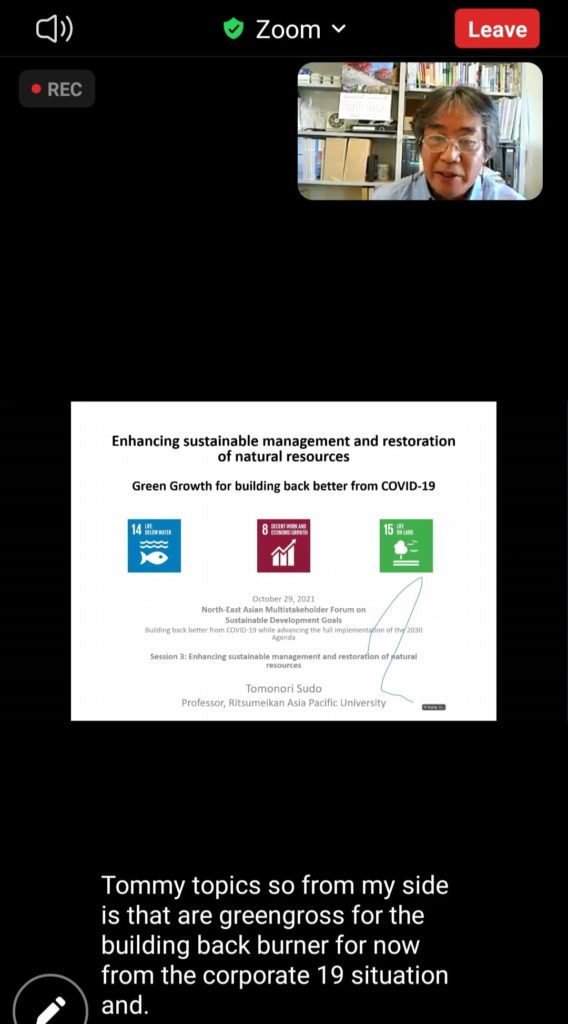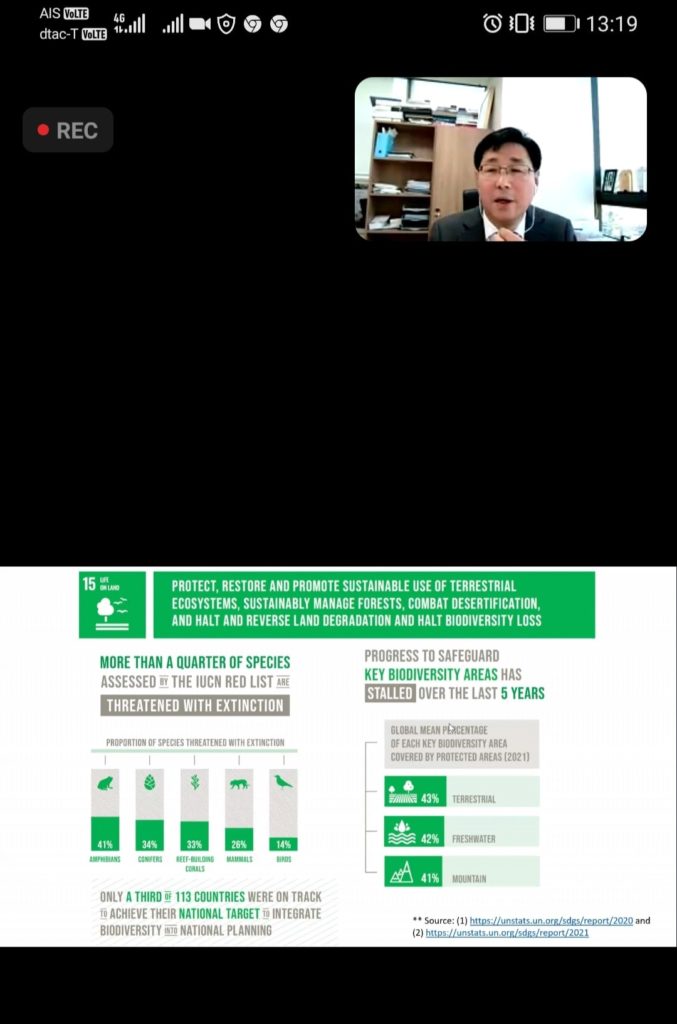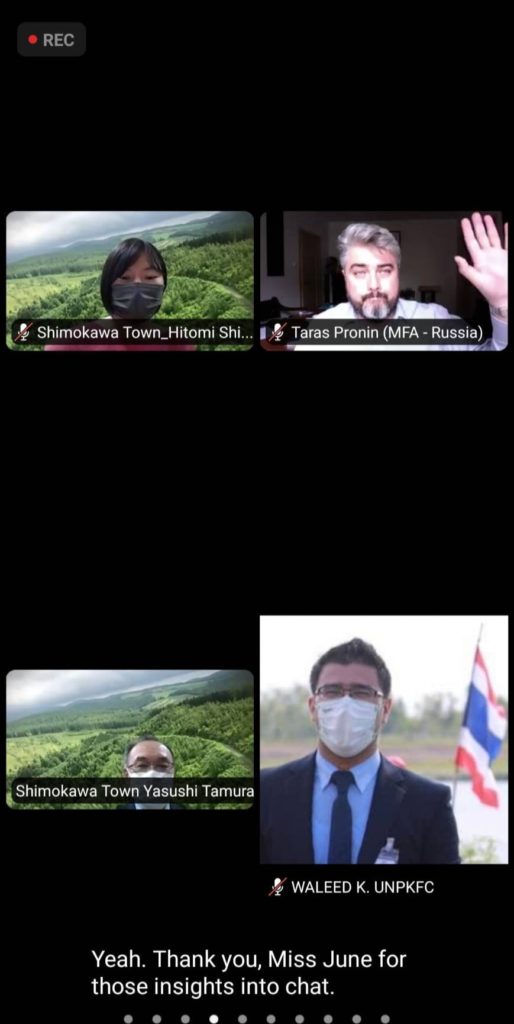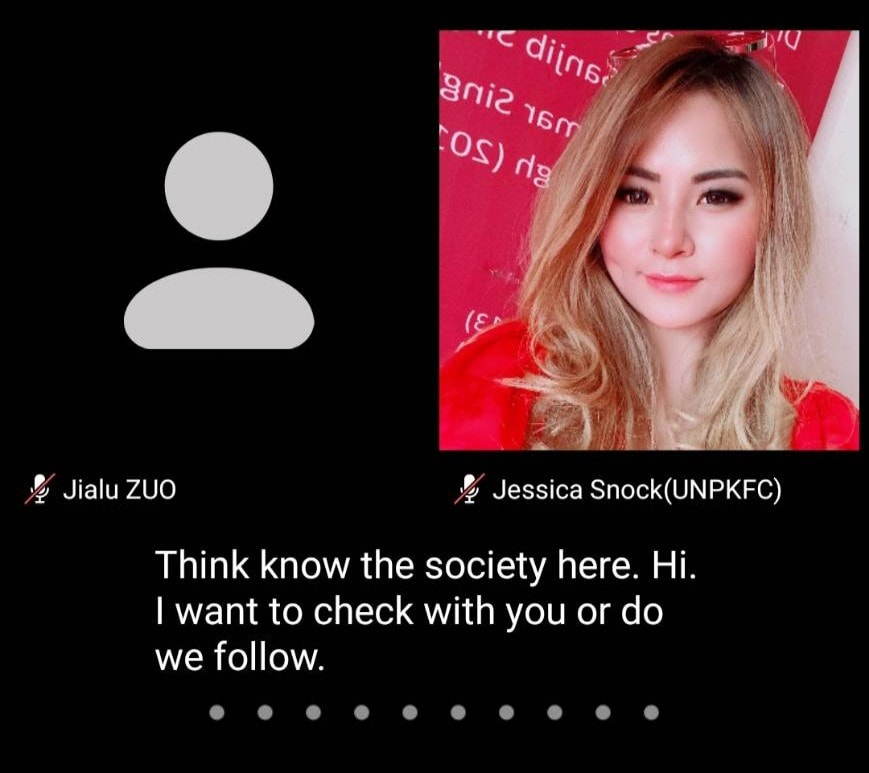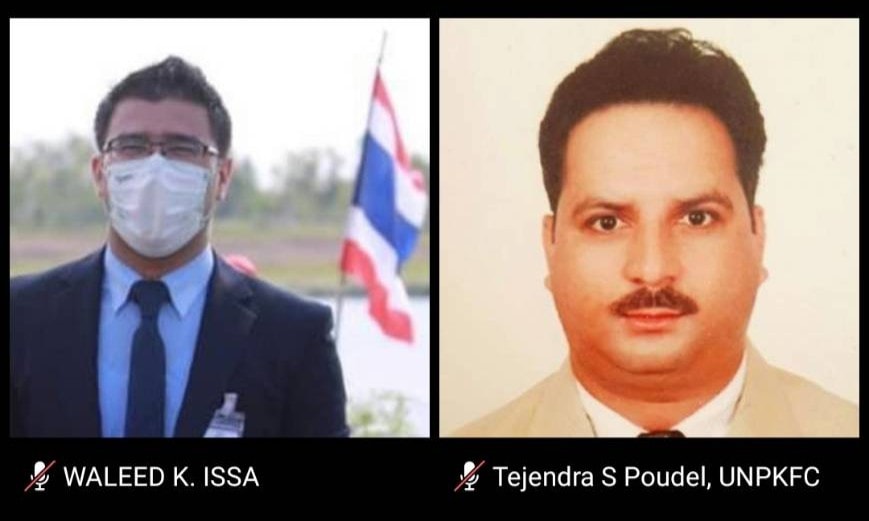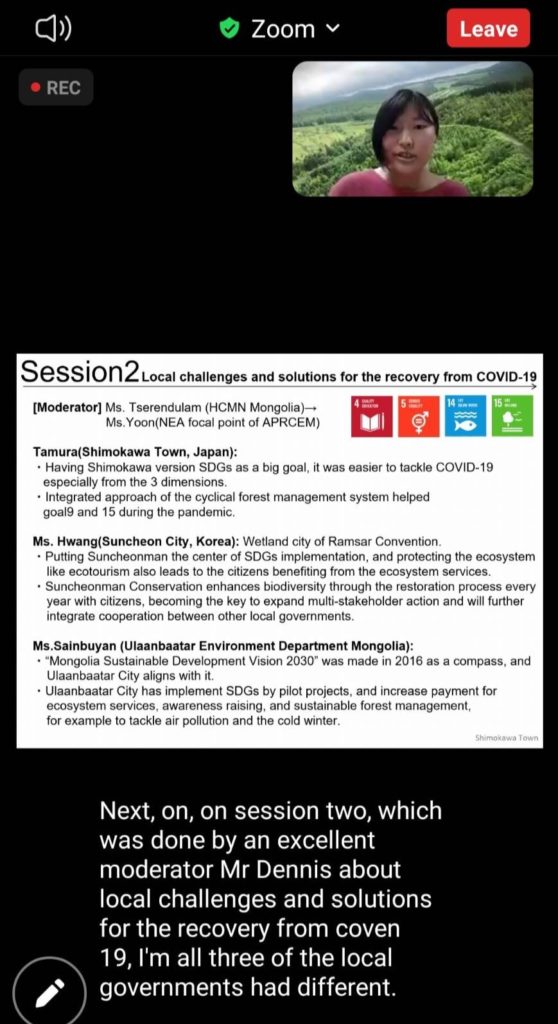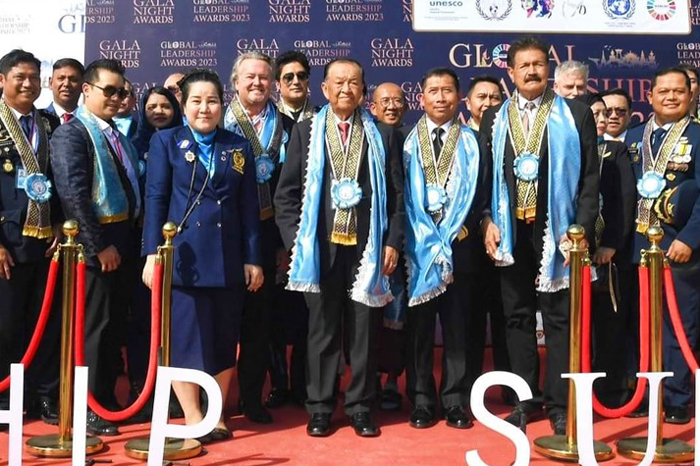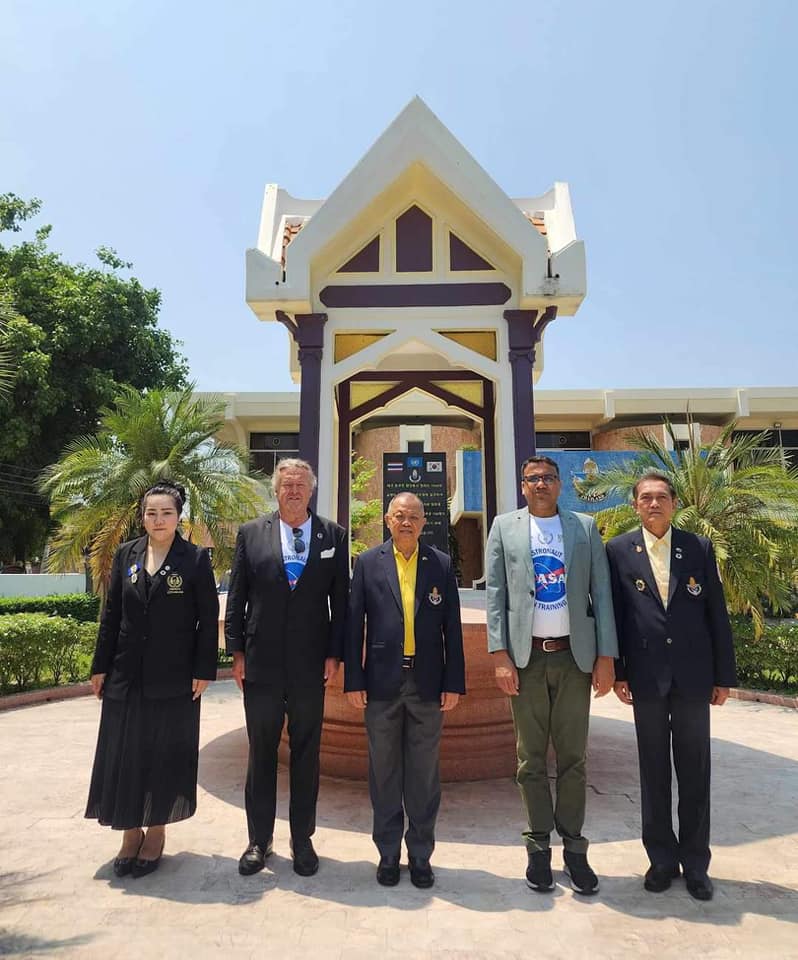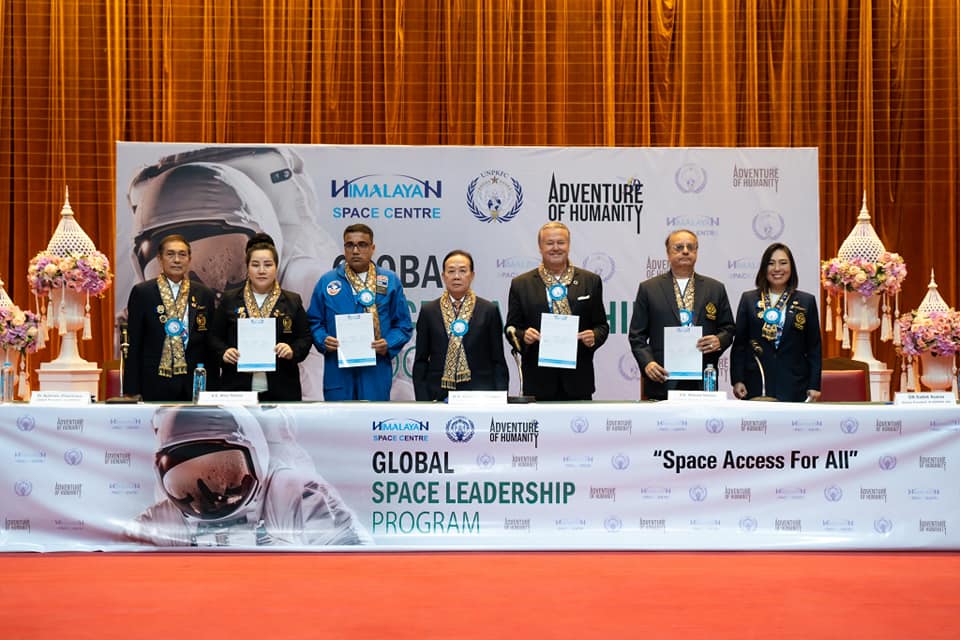The Annual North-East Asian Multistakeholder Forum on SDGs on 28 and 29 October 2021.
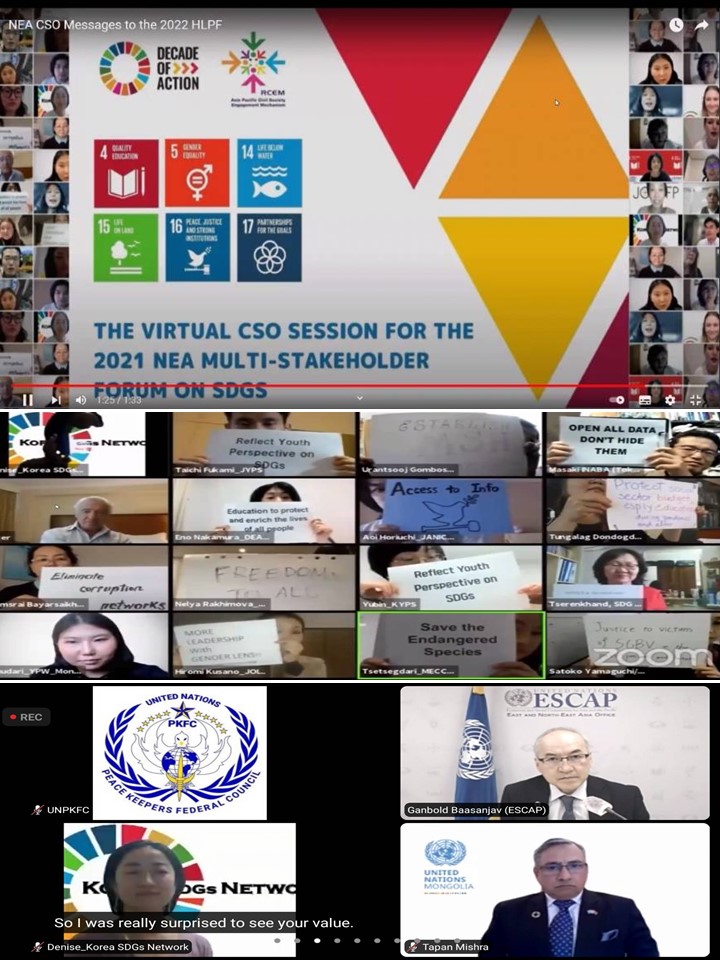
United Nations Peace Keepers Federal Council(UNPKFC) Attend a Zoom Meeting ; Attend Building back better from COVID-19 while advancing the full implementation of the 2030 Agenda
ESCAP East and North-East Asia Office will virtually organize the annual North-East Asian Multistakeholder Forum on SDGs on 28 and 29 October 2021.
As a part of the preparatory process for the 9th Asia-Pacific Forum on Sustainable Development (APFSD) and the 2022 High-level Political Forum on Sustainable Development (HLPF), the Forum will provide a unique opportunity to bring together stakeholders to share experiences, key challenges and opportunities for the implementation of the 2030 Agenda in view of the COVID-19 pandemic, offering subregional inputs and perspectives for regional and global forums.
The theme of the subregional SDG Forum this year is “Building back better from COVID-19 while advancing the full implementation of the 2030 Agenda”, with in-depth review of SDGs 4, 5, 14, 15 and 17, aligned with the thematic focus of the 2022 HLPF.
Perspectives on the APFSD and HLPF theme 2022 “Building back better from the coronavirus
disease (COVID-19) while advancing the full implementation of the 2030 Agenda for
Sustainable Development”
Guiding and follow-up questions for breakout discussions
Guiding questions to gather input for 2022 SDG Partnership Report to Collect views on (1) how effects of
COVID-19 are different for groups within countries / between countries and (2) evolving recovery
priorities and how these align with / are taking up the SDG framework: (bold questions appear on the
Programme as key questions)
How has COVID-19 affected quality education / gender equality/ life under water/ life on land
and biodiversity (marine and terrestrial) conservation (SDGs 4, 5, 14, 15 respectively)? How
have these issues been included or mainstreamed in the COVID-19 recovery measures of your
government and institutions?
o What policies and measures has your government adopted to address the impacts on
education, gender equality, life under water and life on land?
o In the field of education/gender equality/environment, what are the main challenges we
face as a result of the pandemic?
How are the above effects of COVID-19 and recovery measures different for groups within
countries and between countries?
o What are the key factors to promote an inclusive recovery that includes vulnerable
groups in East and North East Asia?
Where are you seeing emerging possibilities, initiatives and priorities to invest in these goal
areas to enable a more sustainable recovery?
o In the field of education/gender equality/life under water/life on land, what are the key
policy recommendations to drive recovery in an inclusive manner? (Note: this could be
separate for each sector, or it could be on crosscutting areas beyond one sector (e.g.
education of girls).
o Are there examples of good practice from other countries that you think can be
replicated in your country, in terms of resilient recovery to ‘’leave no one behind’’?
o Are there any good examples from your subregion/area, and your organisation, in terms
of building back better in East and North East Asia?
o Identify specific examples that could be highlighted in country cases, boxes, for further
exploration in 2022 SDG Partnership Report
What is successful and where are we missing the mark?
What is working well that you would recommend repeating, and why?
What is not working well or as planned that you would recommend changing, and
why?
What new approaches would you recommend trying, and why?
Additional questions:
How can subregional cooperation (between & among governments and other stakeholders)
strengthen resilience to the effects of COVID-19 (on SDG under discussion) at all levels/sectors
of society? (SDG 17)
What are the key factors to ensure a resilient recovery from the pandemic in East and North
East Asia?
Note: If breakout rooms have more people wanting to speak and share than time will allow, request all
participants to share in the chat their ideas/statements/examples in as much detail as they like, then
allow a more limited time for an abbreviated intervention to the discussion. Ensure they include full
names/contact info if they are willing to provide more information. We can also share our contacts for
them to share further.

